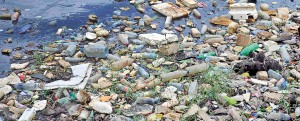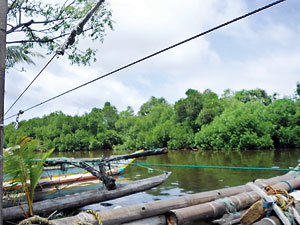News
Negombo’s endemic natural resources vital for its development: Residents
Government officials and residents of Negombo say that if the proposed development of their city under the Megalopolis and Western Development Ministry is to be a success, it is vital that the endemic natural resources of the area are protected, nourished and maintained, not destroyed in the name of development.
 Negombo Divisional Secretary A.K.R. Alawaththa said the problem of pollution in the Negombo Lagoon and the destruction of the mangroves which are a haven for the breeding of fish and wetland water birds such as cormorants herons, egrets, gulls, terns etc., too need to be addressed promptly.
Negombo Divisional Secretary A.K.R. Alawaththa said the problem of pollution in the Negombo Lagoon and the destruction of the mangroves which are a haven for the breeding of fish and wetland water birds such as cormorants herons, egrets, gulls, terns etc., too need to be addressed promptly.
“Mangroves are tropical plants that flourish in swamps, sending their roots down from their branches. They thus create a safe haven for breeding fish,” he noted.
The Negombo Lagoon in southwest Sri Lanka is fed by a small number of rivers and the famous Hamilton Canal. It is linked to the sea by a narrow channel to the north near Negombo town.
“However, this beautiful lagoon and its environs are being polluted every minute by the people, of whom 90% are fishermen themselves,” says the Negombo Divisional Secretariat. “Negombo Beach is not a threat to the environment as it is cleaned by labourers employed by hoteliers. Now, this 22-km perimeter lagoon and the swamps or the wetland with mangroves covering about 35 acres are in a pathetic condition due to pollution . Fisherman wash their nets and fishing gear in the lagoon itself, while cans, plastic bottles, torn nets and domestic debris can be seen floating, and when they get stuck among the roots of the mangroves, no human can reach them to clear them. If we don’t do anything, it will soon be a ‘mada kalapuwa’.
Ramesh (45), a fisherman resident in Negombo, shared the same view. He said, “We have been fishing for a long time. We too know what is happening to this lagoon and the mangroves. Somebody must come and help us. We are a poor people. We can’t do anything other than fish.”
Meanwhile, Mr. Alawaththa told the Sunday Timesthat, of about 35,000 families living in Negombo, 5,000 families still live on State land, and of these, 974 families (4,267 people) were affected by the recent floods.

The threatened mangroves
While none of the houses were completely destroyed, many were damaged and people were left destitute for a few days, during which time the authorities stepped in to provide them with cooked meals and dry rations.
The residents will also benefit from an insurance scheme which would entitle them to, between Rs 10,000 to 25,000, to repair their damaged houses
Mr. Alawaththa says this is not a permanent solution and a plan must be initiated to provide these people with land, so they could construct houses on their own land, instead of allowing them to live on the roads and pavements, along the Hamilton Canal or by Railway Stations.

